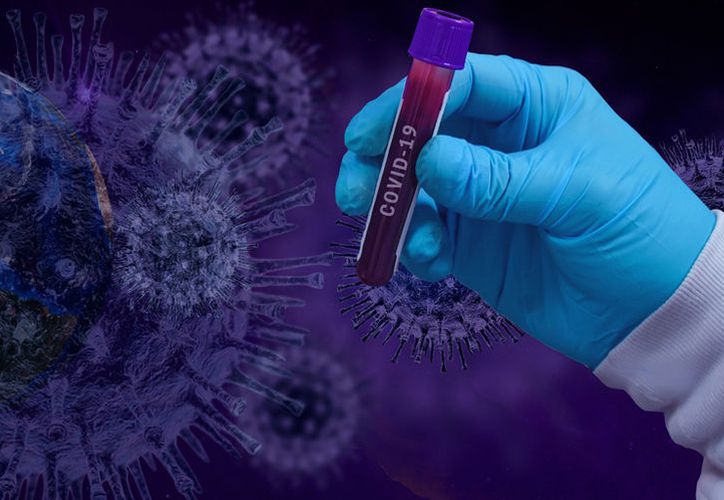The new variant of Covid-19 called Omicron, which was detected on November 24, causing a global alert and, in the last recordings, they had confirmed 475 cases in 38 countries.
The first country to detect Omicron was South Africa, where 24% of its population benefits from the full vaccination schedule, it has 217 confirmed cases, on the basis of real-time monitoring managed by the German specialist center Statista.
During a press conference, Maria Van Kerkhove, technical manager of the World Health Organization (WHO), said Ómicron has been detected in 38 countries and so far the variant is found in all six WHO regions; At the time of going to press, only 29 had published the number of patients.
The risk of contracting Covid-19 again is three times higher with Omicron than with the Beta and Delta variants, quoted Maria Van Kerkhove in a South African study.
Soumya Swaminathan, chief scientist at the WHO, called on the community not to panic over the appearance of the Omicron variant and assured that it is too early to confirm whether the Covid-19 vaccines will need to be changed.
On the other hand, WHO spokesperson Christian Lindmeier told a UN briefing in Geneva that vaccine manufacturers should be prepared for the possibility of having to adjust them.
The spokesperson stressed that the WHO has so far no record of micron-related deaths or severe cases. “I have not seen any information on omicron-related deaths,” he said.
“Preliminary data seems to show it’s more contagious, but that’s basically the only thing we know so far,” Lindmeier explained.
The cases that have been recorded in other countries are:
- – United Kingdom: 58 cases
- – Ghana: 33 cases
- – Botswana: 19 cases
- – Germany, Holland and Portugal: 13 cases
- – Australia: 11 cases
- – United States: 10 cases (Two of the confirmed infected are local)
- – Hong Kong: 8 cases
- – Spain: 7 cases
- – Israel: 7 cases
- – Switzerland: 6 cases
- – Belgium 6 cases
- – Canada and Austria 5 cases
- – Italy 4 cases
- – Norway 13
- – Brazil and South Korea 3 cases
- – Japan, France, Réunion, India and Denmark 2 cases
- – Sweden, Ireland, Czech Republic, Tunisia and Mexico: one patient
Why is there a higher risk of contagion with Omicron?
Gosia Gasperowicz, a biologist from the University of Calgary, Canada, warned in a interview with Pascal Beltrán del Río, for Imagen Multicast, that the variant has 30 mutations in the spike protein, which makes it “very dangerous”.
“The Omicron has been shown to transmit faster than the delta variant,” he added.
He confirmed that Ómicron’s progress in South Africa “has been very rapid and cases have doubled every three or four days” since November 26, when, with the delta variant, “its doubling occurred. between 12 and 14 days “.
Regarding the anti-ovid vaccines, Gasperowicz stressed that “there is still no definitive information regarding the level of immunity they offer against omicron”.
Do quarantines work against Omicron?
The Canadian expert replied that “there is definitive evidence that the quarantines are working. They are effective ”, in relation to the post of Mexico’s Under-Secretary of Health, Hugo lopez gatell, who, when confirming the first case of Ómicron in Mexico, assured that “the closure of borders and the blocking of people or goods are not useful measures to contain the variants”.
(With information from Excelsior)
Join our groups to follow the news:
WhatsApp : https://chat.whatsapp.com/K1v1E39Ptds2wcQhpomLPp
WhatsApp (2): https://chat.whatsapp.com/FJ98jiimd4EHDerCQv0Kjk
Telegram: https://t.me/joinchat/8ARfcQNqlWUzZWRh
You may also like:
Ómicron has already arrived in Chile! the first case is confirmed
Confirmation of a second case of micron in Minnesota, United States
EU will require travelers to take a negative COVID test 24 hours before their flight

“Travel aficionado. Twitter scholar. Writer. Extreme coffee guru. Evil pop culture fanatic.”
